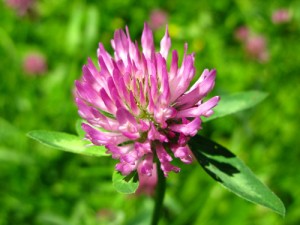Irritable bowel syndrome (IBS) is a common digestive problem affecting nearly a third of the population. Symptoms include unpredictable bowel movements – diarrhoea, constipation or both – stomach pain, and bloating. There are also several non-digestive symptoms such as muscle pain, tiredness, mood disturbance, and headaches. IBS can take a major toll on the quality of everyday life.Considering IBS is so widespread, it is surprising that the orthodox treatment available is so limited. Treatment mainly consists of pain relief, and there is no specific test to diagnose IBS.IBS is now considered a disorder of the gut-brain axis, a two-way nervous connection between the brain and the nervous system controlling digestion. In those with IBS, the pain receptors in the gut become super-sensitive and generate an exaggerated pain response to the presence of food and drink. What’s called visceral hypersensitivity can also affect other parts of the body causing wider ranging pain.There are numerous factors that can spark IBS. A well-known cause is that a bad stomach infection initiates an inflammatory response. Other contributing factors are gender (it is more common in women), genetic susceptibility which makes some people more vulnerable, and the levels of stress and anxiety you are experiencing. Changes in gut function such as delayed gastric emptying and increased intestine permeability in leaky gut are other factors.Gut bacteria play a fundamental role in digestion and changes in the balance of good and bad bacteria are associated with IBS symptoms. Diet is crucial for optimizing gut bacteria and is therefore vital in managing IBS. The two books suggested here* give detailed approaches to controlling IBS through dietary changes.For the most comprehensive approach to treating both the cause and symptoms of IBS visit a Medical Herbalist. Following a full consultation and assessment of any food intolerances, a mix of herbal medicines will be selected. This will be unique for each individual as people with IBS vary in the symptoms experienced and the possible causes.A Medical Herbalist will treat IBS by selecting herbs that:Promote and balance beneficial bacteria and reduce harmful bacteriaEase pain by reducing spasms of the gut wallReduce inflammation and balance the immune responseReduce diarrhoea or constipation and promote formation of healthy stoolsOptimise digestive secretions to normalise bowel functionPromote gastric emptyingReduce gut permeability by repairing the gut liningReduce the build up of gas and reduce flatulenceImprove the ability of the body to cope with stressTone the nervous system to help reduce visceral sensitivityBy addressing both the cause and symptoms of IBS with herbal medicines and combining this with changes in diet this offers the most comprehensive treatment and a future free of IBS. *The Digestive Health Solution (2017) Benjamin I Brown, ND* Eat Yourself Healthy (2019) Dr Megan Rossi


